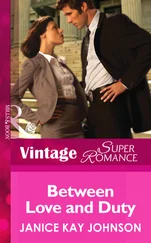“We can find out,” her partner suggested.
“You don’t think I’m crazy?”
His grin was wry. “Probably. I shouldn’t encourage you. But…hell. We can ask a few questions.”
“Damn it,” Ann muttered. “I was hoping you’d say I was wacko. Then I could forget the whole idea.”
“You’re wacko,” he obliged. “Let’s forget it.”
“Now it’s too late.” She scowled. “Speaking of too late, do you suppose they looked for footprints at Leroy’s? Ground was soft.”
“I can’t imagine. By the time his wife and half a dozen neighbors rushed over, and the EMTs trampled the hillside bringing him up, what were the chances?”
Resigned, she made a face. “None. Of course.”
“Still, we could talk to neighbors. Maybe one of them saw somebody go around back, figured it was a friend, didn’t think anything of it.”
“And no one ever asked them.”
“Happens.” His tone was utterly expressionless.
Ann glanced at him, knowing darn well what he meant. Her father hadn’t asked some questions when he was investigating the disappearance of Julie Lofgren. If he’d asked them, he would have found her and saved her husband and kids an excruciating year and a half.
“Okay,” she agreed, then realized they were stopped.
The neighborhood on the fringes of Puyallup was run-down: paint peeling, lawns ragged, driveways filled with cinder-blocked wrecks. She’d been on domestic disturbance calls here when she was a patrol officer.
“Which house?”
“Two blocks down.”
“Do we want backup?” she asked.
“We’re waiting for it.”
“My, aren’t we efficient.”
He gave her another crooked grin, and Ann had one of those moments she hated, when something turned over in her chest and she had to admit he was an attractive man.
His dark hair and eyes went with the Hispanic name. He was half a head taller than she was: six foot one or two, she guessed. She’d found out he was eight years older than she was, which put him at thirty-six. Rumor said he’d been a state champion hurdler in college, which she could believe after seeing him run down a suspect.
Grooves bracketed his mouth, deepening when he was tired, adding puckish charm to his smiles. And damn it, his smiles were what got to her, with the glint in his eyes and the skin crinkling beside them. A face that was usually impassive became sexy.
He was probably a lady-killer. If she called him during off-hours, she often heard laughter and a feminine voice in the background. Unlike her, he apparently had an active social life.
He also had kids, she knew. A couple of times he’d offhandedly mentioned having them for a weekend. When she’d asked once what happened to his marriage, he’d only shrugged.
“I’m a cop.”
That couldn’t be the whole story. Plenty of cops did stay married, even seemed happy. But she had tried hard not to speculate; Diaz’s personal life wasn’t any of her business. They worked together. Period.
She just wished…oh, that he was fifty-five instead of thirty-six. Squat, or pudgy, or stringy, instead of lean and athletic. Maybe that he chewed tobacco, so his teeth were stained. Or…heck, she’d forget he was sexy-looking if he had a crude sense of humor and down-deep disdain for the pathetic excuses for humanity they often met in their jobs.
No such luck. As far as she could tell, Diaz was smart, occasionally funny, basically kind and dedicated to his job. She’d looked hard for faults and was irritated by how few she’d found.
He interrupted her reverie. “You’re thinking again.”
“What?” She knew she flushed. “I’m supposed to empty my mind while we sit here?”
He glanced in the rearview mirror. “Sitting’s over.”
A patrol car pulled in behind their unmarked blue sedan. The four police officers got out to hold a brief conference. The two uniforms nodded when told their role in the upcoming drama.
Minutes later, Diaz and Ann pulled up to the curb in front of a shabby white house. The squad car slammed to a stop in the driveway. The uniforms raced to the back of the house, while Ann followed Diaz to the front door.
She stood back while he took the lead, knocking hard and calling, “Police!”
The woman in the stained housecoat who came to the door tried to pretend she had no idea where her son was, but she was a lousy liar. Shouts in back told them their quarry had tried to make a break.
When the uniforms shoved him, handcuffed, unshaven, barefoot and screaming obscenities, around the house, she broke into tears.
“Don’t hurt Eddie! It’s not his fault. Those drugs, they got him by the throat and make him crazy! You gotta help him!” she begged, tears tracking a face aged by a life that couldn’t be any picnic.
“He’s in police custody. He won’t be hurt,” Diaz said, in a voice gentle enough to make her sag.
As the day unwound, damned if they didn’t find she was washing Eddie’s blood-soaked clothes. The vest, though, was black leather, and she hadn’t wanted to ruin it, or his good leather boots. It apparently hadn’t occurred to her that rusty streaks of dried blood on her pink plastic laundry basket might be hard to explain, too.
Dinner was sandwiches at Subway, with Diaz and Ann companionably sharing cookies and chips. She figured she’d gotten her daily vegetables in the lettuce, tomato and green pepper on the six-inch sub.
Their knees bumped under the small table. They talked in short bursts, until Diaz suddenly swore. “I was supposed to call Elena and Tony before eight.”
“Your kids.” She vaguely knew their names.
“Crap.” His shoulders slumped. “I’m always doing this.”
“They must understand.”
He gave a sharp, incredulous laugh. “They’re seven and nine. Of course they don’t understand.”
She bit her lip and said in a quiet voice, “I did at that age.”
“Your mother wasn’t telling you that your dad couldn’t be bothered with you.”
“My mother died when I was eight.” Her mother’s death was something she didn’t let herself think about, and mentioned only when it seemed unavoidable. Even then, she kept the statement matter-of-fact. No how or why; that was nobody’s business. Ann crumpled up her sandwich wrappings.
Mercifully, Diaz didn’t say, Oh, what happened to her? Instead he stared at her. “I didn’t know. Is that why…”
When he stopped, she said, “Why what?”
His big shoulders jerked. “I don’t know. Why you’re a cop.”
She heard the pause after “you’re.” He was thinking something else. Fill in the blank. “Like one of the guys.” When what he meant was, “Why you’re so unfeminine.”
The knowledge stung, as every such suggestion did. Especially lately.
“Yeah, Dad wasn’t much help at picking out a prom dress.” Flippancy seemed to be her best defense these days.
“You went?”
“Sure,” she lied. “Pretty in pink.”
He took a last swallow of soda, then rattled the ice cubes. “Pink isn’t your color. You should wear blue. To match your eyes.”
Rarely without a comeback, Ann didn’t have the slightest idea what to say. She couldn’t take offense at a casual observation. “Thank you” wasn’t called for. He hadn’t said, “You’d be beautiful in blue.”
He didn’t remark on her silence, only gathered up his wrappings and said, “Ready?”
In the car, she said, “Do you want to try calling your kids now?”
Diaz shook his head. “Cheri would just claim they’re asleep even if they’re not. I’m not in the mood for her digs.”
“I’m sorry,” Ann heard herself saying. “You’ve never said…”
“That my ex-wife hates my guts?” He made a sound in his throat. “That’s the way it is.”
Читать дальше












